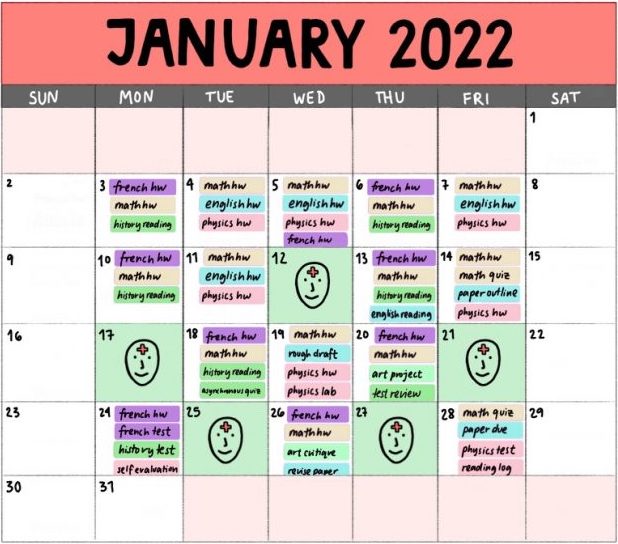New law addresses youth mental health
While existing Laboratory Schools policy allows student mental health days, they aren’t designated.
December 16, 2021
Over 2.5 million youth in the U.S. have severe depression, and multiracial youth are at greatest risk, according to Mental Health in America. With an increase in mental health concerns over the years, the state of Illinois is taking action to help teens.
Starting in January, Illinois public school students ages 7 to 17 can take up to five excused mental health days without the need for a doctor’s note under a law signed by Gov. J.B. Pritzker, and while existing Laboratory Schools policy allows student mental health days, they aren’t designated.
Students will be able to make up any work they miss.
State Rep. Barbara Hernandez, a Democrat from Aurora, co-sponsored the legislation. She believes it will be an opportunity for students to not only receive a mental break from school but will start a conversation among families, teachers and counselors.
“If there is something that parents need to know early on, they will be able to determine that,” Rep. Hernandez said in an interview with the Midway, “because, after a certain number of days, the student will be asked, ‘Hey we saw that you’re almost at your five mental health days, is there something going on?’”
Rep. Hernandez’s own high school experience led her to support the bill.
“I come from a household where depression was not something we talked about, and if I ever did suffer from depression in high school, then according to my family, it was wrong,” Rep. Herandez said. “I know there are a lot more minorities and parents who think that way, so we need to break that stereotype and say, ‘You know what, it’s OK to have mental health issues.’”
At the Laboratory Schools, a mental health day policy has always been in effect, according to Dean of Students Ana Campos.
A U-High student who wants to take a mental health day must complete a pre-arranged absence form or their parents must notify the attendance office each day the student is absent. The absences are categorized under the “illness” attendance mark, and count toward the attendance threshold, similar to most other absences. After three days of absence, counselors will reach out to the student to ensure everything is OK. After five days, counselors reach out again to create a plan with the students.
“We are trying to identify or pay attention to when we see a trend happening or something going on, and that is the reactive part of it because we only know something is wrong if somebody isn’t here,” Ms. Campos said. “Parents often are proactive and will notify the school.”
Farah Sugrue, a U-High senior, would prefer to have designated mental health days.
“I know some of my friends’ families wouldn’t necessarily pull their child out if they were struggling mentally as much, which is really sad but true,” Farah said. “I think having those days off as a designated mental health day would validate it in parents’ minds and normalize it a little bit more, which is important.”
Counselor Teddy Stripling doesn’t have a strong opinion about whether designated mental health days should be implemented. He is more concerned about the impact of mental health days and whether they would be helpful for students. He believes the day off is a useful opportunity for students to have space to reset and come back.
Mr. Stripling said, “Across the nation in the past couple of years, there has been a rise in mental health needs for students, and so different states have been trying to do things to create a little bit of a buffer to support students in that process.”




























































